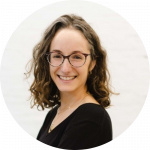
Dr. Frank Russo
Principal Investigator & Scientific Director

Dr. Arla Good
Lead Researcher & Co-Director
Project Managers
Katherine Spencer
Fran Copelli
Communications Lead
Amber Krogel

Dr. Ben Zendel
Hearing Loss

Dr. Gunter Kreutz
Breathing Disorders

Dr. Jessica Richardson
Aphasia

Dr. Shantala Hegde
Parkinson’s Disease

Dr. Simone Falk
Stuttering

Dr. Yoon Irons
Parkinson’s Disease
Dr. Alexander Ng
Marquette University
Dr. Andrea Ravignani
Sapienza University of Rome
Dr. Annabel Cohen
University of Prince Edward Island
Dr. Assal Habibi
University of Southern California
Dr. Ben Zendel
Memorial University
Dr. Carole Anglade
Université de Montréal
Dr. Christian Gold
Toronto Metropolitan University
Dr. Daisy Fancourt
University College London
Dr. Deniz Başkent
University of Groningen
Dr. Elizabeth Rochon
University of Toronto
Dr. Emily Coffey
Concordia University
Dr. Gilles Comeau
University of Ottawa
Dr. Gunter Kreutz
Carl Von Ossietzky University
Dr. Isabelle Peretz
Université de Montréal
Dr. Janeen Loehr
University of Saskatchewan
Dr. Jennifer Rayner
Alliance for Healthier Communities
Dr. Johanna Devaney
Brooklyn College, The City University of New York
Dr. Keyvan Eslami
Toronto Metropolitan University
Dr. Laurier Fagnan
University of Alberta
Dr. Merel Keijzer
University of Groningen
Dr. Michelle Gravier
California State University, East Bay
Dr. Nicole Marquis
Université de Sherbrooke
Dr. Patrick Savage
Keio University
Rena Sharon
University of British Columbia
Dr. Sandra Trehub (In Memoriam)
University of Toronto
Dr. Shantala Hegde
National Institute of Mental Health Neuroscience
Dr. Yoon Irons
University of Derby
Dr. Alexandra Fiocco
Toronto Metropolitan University
Dr. Anna Zumbansen
University of Ottawa
Dr. Amy Clements-Cortes
University of Toronto
Dr. Becky Choma
Toronto Metropolitan University
Dr. Bill Thompson
Bond University
Dr. Chris Chafe
Stanford University
Dr. Colette McKay
Bionics Institute
Dr. Daniel Bowling
Stanford University
Dr. Edith Durand
Université du Québec à Trois-Rivières
Dr. Ellie Harding
University of Groningen
Evelyn Pollock
Marquette University
Dr. Gillian Sandstrom
University of Sussex
Dr. Helen Henshaw
University of Nottingham
Dr. Jane Gosine
Memorial University
Dr. Jennifer Bugos
University of South Florida
Dr. Jessica Richardson
University of New Mexico
Dr. Kate Dupuis
Sheridan College
Dr. Laurel Trainor
McMaster University
Dr. Lee Willingham
Wilfred Laurier University
Dr. Merrill Tanner
University of Alberta
Dr. Mridula Sharma
Flinders University
Dr. Pascale Tremblay
Université Laval
Dr. Rebecca Barnstaple
University of Guelph
Dr. Rick Arenas
University of New Mexico
Dr. Sarah Duncan
University of New Mexico
Dr. Simone Falk
Université de Montréal
Christina Wynans
Ellen Cotton
Dr. Jane Gosine
Natasha Wandel
Sina Fallah
Cynthia Friesen
Heitha Forsyth
Michael Wintering
Paula Wolfson
Stephen Ruppert
Dr. Christian Gold
Ellen Bernstein-Ellis
Dr. Lee Willingham
Dr. Stephen Clift
Dr. Daisy Fancourt
Dr. Jane Ginsborg
Paul Cann
Adiel Mallik
Dr. Dawn Merrett
Dr. Gemma Perry
Dr. Louise Drouin
Dr. Sarah Duncan
Dr. Chi Yhun Lo
Dr. Eva Schurig
Dr. Jennifer Bugos
Nicole Gallegos
Dr. Sean Gilmore
Aidan Boucher
Alisa Hashimoto
Anja Dimitrijevic
Ariane Careau Guerette
Carmen Dang
Christian Boyle
Farida Abass
Hsun-Yi Liao
Jacob Leblanc
Jessica Hulan
Léa Jourdain
Margaret Orford
Nathan Gagne
Olivier Thibodeau-Laufer
Valeria Millan
Alex Pachete
Alison Talmage
Anna Kasdan
Bridget Boyle
Catherine Des Rosiers
Esztella Vezer
Fidaa Akrout
Jack Sunjo
Jerusha Alvares
Kathy Matkin-Clapton
Lee Wolff
Narges Bayat
Nicholas Powers
Tara Gaertner
Ⓒ 2020-2025, The SingWell Project